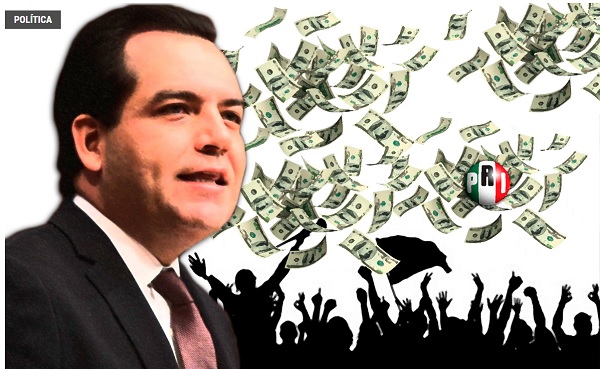The San Francisco Chronicle published an article on Thursday April 27, describing a political meeting in the southern state of Chiapas where citizens that live in miserable conditions, are obliged to attend under threat of losing benefits.
The scene was so typical of Mexico’s long-dominant ruling party that it could have happened a half-century ago: poor women lined up under a blazing sun, waiting for a politician to show up hours late for a rally they had been obliged to attend under threat of losing benefits from an anti-poverty program.
But unlike a half-century ago, there were a couple of independent media outlets interviewing the women, who were hot, tired and outraged that a government program would be used for political purposes.
The venting ended abruptly when Institutional Revolutionary Party workers arrived to kick out the reporters and tell the women to stop talking. Bruisers took a cameraman’s equipment and physically ejected him from the stadium where the event was being held, threatening to “disappear” him and other journalists.
“When they took us into the (stadium’s) bathroom, they said ‘you’re going to die.’ That’s when I really got scared,” said David Morales, director of the internet news service Chiapas Without Censorship, describing interviewing women at a rally in Tuxtla Gutierrez for PRI Sen. Roberto Albores Gleason over the weekend.
Such threats are terrifying in rural Mexico, where dozens of journalists have been killed in recent years. And they reflect what many perceive as a return to its corrupt, old practices by the ruling PRI, as it fights for its life in June gubernatorial elections in some of its last bastions — Mexico State and the northern state of Coahuila.
The PRI ruled Mexico for 71 years, despite accusations of stolen or bought elections, before being ousted in 2000 voting. When it returned to power in 2012 under President Enrique Pena Nieto, its leaders couldn’t stop talking about how their party had changed.
Now, with several former PRI governors in jail, on the lam or under investigation for corruption, the party is reeling and Pena Nieto’s unpopularity has hit record lows. Experts say it appears to be returning to tried and true methods to hold on to power.
“Some people want to believe in this new PRI baloney, but it’s obvious that democracies tend to reward parties that are consistent over time,” said Federico Estevez, a political science professor at the Autonomous Technological Institute of Mexico. “You just sort of know what to expect from the PRI.”
But the journalistic landscape is now different. Morales said the reporters present at the PRI rally were equipped with the new tool Facebook Live. They kept transmitting as one of the rally organizers told women to stop talking to the journalists.
Organizers had apparently stepped over the line by making the women wait for hours in 100-degree (38 Celsius) heat, leading them to open up to reporters.
“Many of the women were enrolled in the Prospera program, who were being forced to attend,” Morales said.
Prospera is an anti-poverty program that gives poor families grants to buy food and scholarships for their children. Women told the journalists they were threatened with losing their benefits if they didn’t sign in at the end of the rally — a practice once common in Mexico.
The journalists were held for about an hour before being turned over to local police, who refused to arrest them.
Albores Gleason, the PRI politician, released a statement condemning what took place and saying he was “a big supporter of freedom of expression.” But he mentioned nothing about the women being forced to attend the rally.
Click here for full article on The San Francisco Chronicle
Source: http://www.sfgate.com/

